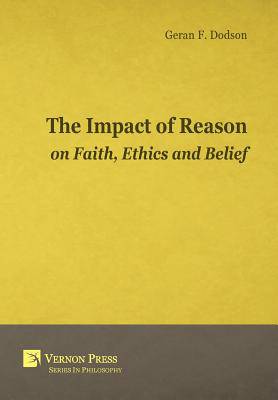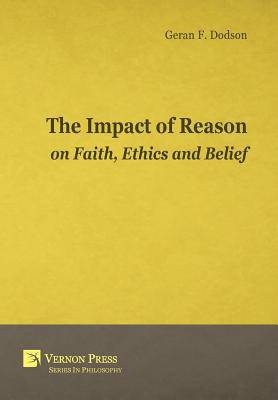
En raison d'une grêve chez bpost, votre commande pourrait être retardée. Vous avez besoin d’un livre rapidement ? Nos magasins vous accueillent à bras ouverts !
- Retrait gratuit dans votre magasin Club
- 7.000.000 titres dans notre catalogue
- Payer en toute sécurité
- Toujours un magasin près de chez vous
En raison de la grêve chez bpost, votre commande pourrait être retardée. Vous avez besoin d’un livre rapidement ? Nos magasins vous accueillent à bras ouverts !
- Retrait gratuit dans votre magasin Club
- 7.000.0000 titres dans notre catalogue
- Payer en toute sécurité
- Toujours un magasin près de chez vous
Description
The purpose of the book is to examine the theological claims of ethics, faith and belief from a philosophical perspective. The Abrahamic and Mosaic covenants of the Old Testament, Jesus of the synoptic gospels, and Paul's writings serve as the frame of reference in examining a biblical expression of reason and structured logic. The message of Jesus centered on the Kingdom of God, defined the meaning of faith and belief, established a new ethic, and framed the message in logic forms. The life and death of Jesus brought the realization of God's final covenant as prophesied by the Old Testament. However, Paul appropriated and developed the Jesus of history into the mythological eschatological Christ figure. The clash of philosophy and theology is evident with theological presuppositions that are based on spiritual insight and divine revelation. Logic in scripture employs propositions based primarily on revealed proof that is within the context of that which cannot be proven absolutely. Uncovering the identity of YHWH in the manuscripts and religious practices of Canaanite culture clearly associated YHWH with the polytheism of the Ugarit texts. YHWH was one of the seventy sons of the Canaanite Most High God El and took on a unique identity that was rooted in El and the polytheistic nature of the pantheon of gods. Theological truths stand within the context of faith and reason stands apart from faith and infers only that which can be proven based on evidence. That which is knowable by faith cannot be known by reason since reason cannot validate that which is not proven to exist.
Spécifications
Parties prenantes
- Auteur(s) :
- Editeur:
Contenu
- Nombre de pages :
- 212
- Langue:
- Anglais
- Collection :
Caractéristiques
- EAN:
- 9781622730575
- Date de parution :
- 17-04-16
- Format:
- Livre relié
- Format numérique:
- Genaaid
- Dimensions :
- 152 mm x 229 mm
- Poids :
- 439 g

Les avis
Nous publions uniquement les avis qui respectent les conditions requises. Consultez nos conditions pour les avis.






